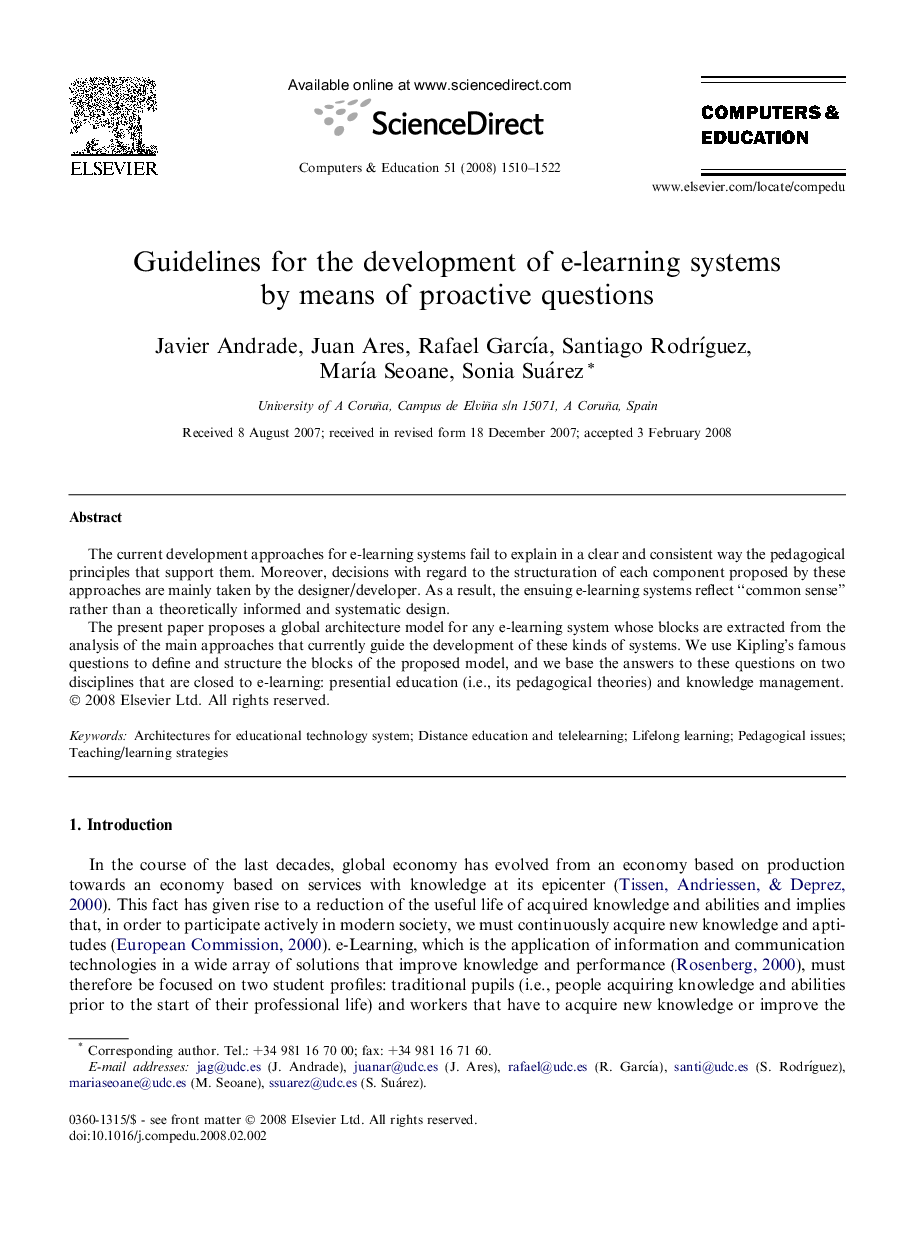| Article ID | Journal | Published Year | Pages | File Type |
|---|---|---|---|---|
| 349874 | Computers & Education | 2008 | 13 Pages |
The current development approaches for e-learning systems fail to explain in a clear and consistent way the pedagogical principles that support them. Moreover, decisions with regard to the structuration of each component proposed by these approaches are mainly taken by the designer/developer. As a result, the ensuing e-learning systems reflect “common sense” rather than a theoretically informed and systematic design.The present paper proposes a global architecture model for any e-learning system whose blocks are extracted from the analysis of the main approaches that currently guide the development of these kinds of systems. We use Kipling’s famous questions to define and structure the blocks of the proposed model, and we base the answers to these questions on two disciplines that are closed to e-learning: presential education (i.e., its pedagogical theories) and knowledge management.
